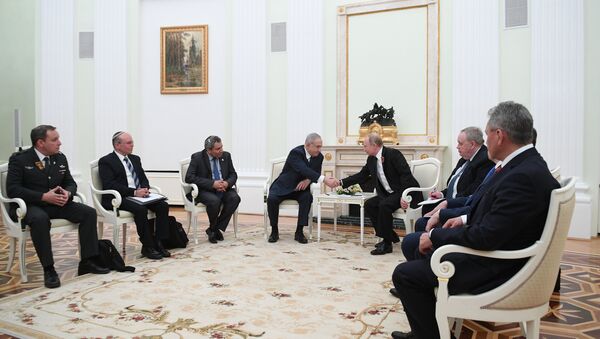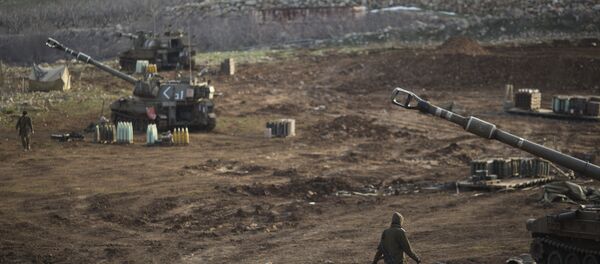On May 9, Benjamin Netanyahu arrived in Moscow to meet Russian President Vladimir Putin and attend the Victory Day Parade in Russia. During the talks with Putin, the Israeli prime minister thanked his counterpart for the invitation as well as for separate mentioning of Holocaust in his speech. According to Netanyahu, this is another evidence of close relations between the peoples of Russia and Israel.
READ MORE: Highlights of the 2018 Victory Day Parade in Moscow (PHOTO, VIDEO)
Putin, in his turn, noted that Moscow and Tel Aviv shared memories of World War II and were united in their attitude to Nazism. In commemoration of the victims of the war, the leaders laid wreaths at the tomb of the unknown soldier.
"The role of history is very important –when such a murderous ideology appears, it is necessary to stand up to it in time. It is hard to believe, but 73 years after the Holocaust, we in the Middle East have a country – Iran – which openly calls for the destruction of the state of Israel," Netanyahu said.
Later in the day, during a phone briefing, the Israeli Prime Minister told reporters that there were no basis for concern that Russia would attempt to limit Israeli military actions in Syria. He went on saying that previous speculations that Moscow will try to stop Tel Aviv's cross-border attacks proved to be false.
The meeting between the two leaders comes a day after US President Donald Trump announced his decision to pull out Washingon from the nuclear deal with Iran.
Russia, alongside many European countries, has spoken out in favor of preserving the agreement, whereas Netanyahu, who has been insisting that Iran violates the agreement, has welcomed this move. It is worth mentioning that Tehran's compliance has been repeatedly confirmed by the nuclear watchdog, International Atomic Energy Agency.
However, Tehran denies the claims, noting that the country has been only sending military advisers to train troops loyal to Damascus since Iran supports Syrian President Bashar Assad in his struggle against terrorist groups in the country. Nevertheless, Israel continues to view Iranian activities as a threat to national security.



